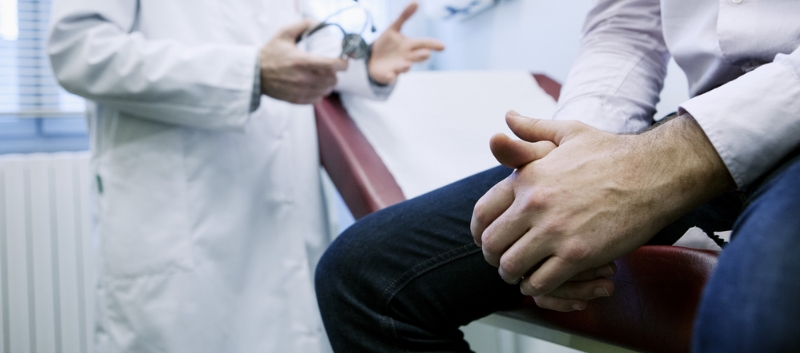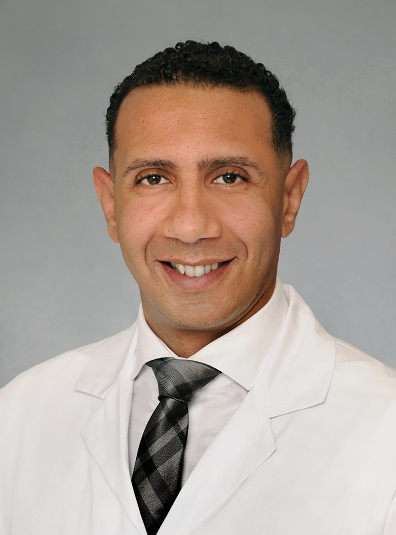
Hypogonadism is a medical condition in which the body produces an inadequate amount of sex hormones. The hormones are important for regulating the body’s functions, such as reproduction, bone health, and muscle strength. With the low production of hormones, this condition can lead to various symptoms and health issues. Dr. Mourad Abouelleil specializes in offering the best treatment for such conditions in West Palm Beach. His experience makes him the best choice for treatment with innovative procedures.
Primary hypogonadism and secondary hypogonadism are the types of hypogonadism. Several reasons, such as genetic conditions, injury, infections, aging, and other medical conditions, can be the reason for the cause of hypogonadism.
Primary Hypogonadism can be caused due to different reasons, such as:
Secondary Hypogonadism can be caused due to different factors, including:
The symptoms of Hypogonadism in men include fatigue, infertility, excessive body weight, loss of muscle mass, mood swings, and depression. These symptoms can indicate hypogonadism in men, but these symptoms can vary depending on the age of the individual.
Several symptoms of Hypogonadism in women include irregular menstrual cycles, mood swings, irritability, bone weakness, fatigue, tiredness, and vagina dryness. These symptoms can indicate the presence of an insufficient amount of sex hormones (Hypogonadism) in women.
If you experience the symptoms of hypogonadism, then getting medical attention and evaluation by a healthcare provider is essential for the diagnosis of this condition. The diagnosis of hypogonadism can involve:
With the patient’s medical history and physical examination, the doctor can assess the symptoms and conditions contributing to the hormonal imbalance.
Blood tests can help measure the level of sex hormones (testosterone in men and estrogen in women). In the morning, when the sex hormone levels are higher, this test is done. Hormones produced by the pituitary gland can help stimulate the gonads to produce estrogen and testosterone.
Imaging studies of the pituitary gland can be required when there is doubt about the tumor or any other structural abnormality. In some cases, genetic testing is done for the identification of some conditions, such as Klinefelter syndrome or Turner syndrome, that can cause hypogonadism.
The treatment for hypogonadism is done to restore normal hormonal levels and manage the symptoms of this condition. The treatment for Hypogonadism can depend on different factors, such as the condition’s cause and the severity of the symptoms. Here are the treatments for Hypogonadism:
Testosterone Replacement Therapy (TRT) is the treatment procedure for those men who are struggling with hypogonadism. This treatment can be done in different forms, such as injections, implants, and topical gels.
Estrogen Replacement Therapy (ERT) is the treatment procedure for those women who have low estrogen levels. For those women who are experiencing early menopause or have undergone a surgical procedure for the removal of ovaries, this treatment is the most common and effective. This procedure can help with the different symptoms of hypogonadism, such as hot flashes and dryness in the vagina.
Medications to Stimulate Hormone Production: In some cases of secondary hypogonadism, medications can be used to stimulate the pituitary gland, which can increase the production of the sexual hormones testosterone in men or estrogen in women.
Answer. Yes, Hypogonadism is a treatable condition with the proper detection and therapy. When the proper therapy is given for this condition, the hormone levels can be restored, and the symptoms can be managed.
Answer. When you experience symptoms, including fatigue, reduced sex desire, erectile dysfunction, or signs of a hormonal imbalance, it is essential to consult a doctor and seek medical attention. Early detection of hypogonadism and treatment can help prevent complications and risks and can result in improved life quality.
Answer. The lifestyle modifications that can help with hypogonadism include weight management, reducing stress, and avoiding alcohol and tobacco. If hypogonadism is caused by a tumor in the pituitary gland, then surgical intervention is required for the removal of the tumor.

Dr. Mourad Abouelleil is a highly skilled and certified urologist known for his dedication to excellence in advanced urological procedures, such as robotic prostatectomy, HIFU, etc. With cutting-edge technology and extensive experience, Dr. Mourad Abouelleil provides personalized treatment plans to meet the unique needs of every patient with quality medical care.
Error: Contact form not found.